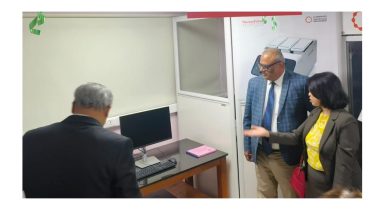Peijia Medical’s TaurusOne approved for commercialisation

TaurusOne consists of a prosthetic aortic valve, a delivery catheter and a compression loading system
A new interventional solution from China for structural heart disease is about to be launched in the market. Recently, TaurusOne Transcatheter Aortic Valve Replacement System (hereinafter referred to as ‘TaurusOne’) developed by Peijia Medical (Suzhou), located in Suzhou Industrial Park, Jiangsu Province, was officially approved for commercialisation by the National Medical Products Administration of the PRC (NMPA) with registration number GXZZ 20213130275.
Academician Gao Runlin of Fuwai Hospital Chinese Academy of Medical Sciences served as Principal Investigator for the TaurusOne registration clinical trial completed by National Centre for Cardiovascular Disease, Fuwai Hospital, The Second Affiliated Hospital ZheJiang University School of Medicine, West China Hospital of Sichuan University, General Hospital of Northern Theater Command, the Second Affiliated Hospital of Harbin Medical University and the Second Xiangya Hospital of Central South University (in order of institution codes listed in the multi-centre clinical trial protocol). The clinical trial protocol employed strict enrollment criteria and passed the pre-clinical review and got approved by the CFDA (now NMPA). One-year clinical study data for TaurusOne definitively confirmed its safety and effectiveness as a treatment for severe aortic stenosis, with no significant difference in clinical results between the bicuspid aortic valve and tricuspid aortic valve.
“The NMPA registration approval of TaurusOne is an important milestone for Peijia,” said Dr Zhang Yi, Chairman and CEO, Peijia Medical, “From now on, doctors in China will have a new product to conduct TAVR procedures, while patients suffering from aortic stenosis will have an additional solution.”
TaurusOne consists of a prosthetic aortic valve, a delivery catheter and a compression loading system. The aortic valve leaflet is made of the bovine pericardium and is processed with a proprietary anti-calcification technique. The stent’s inflow end has an enhanced radial force design, given that China has a large proportion of patients with high aortic valve calcification or bicuspid aortic valves. A balanced waist design avoids blockage of the coronary artery while also maintaining a large orifice area. The inflow end is designed with inner and outer skirts to effectively avoid or reduce paravalvular leakage. The delivery catheter is ergonomically designed with a large handle for accurate operations; the catheter has a maximum outer diameter of 18 Fr and is divided into several segments for easier, more flexible passage and delivery.
Data shows that the global market of TAVR reached $5 billion in 2020 and is expected to maintain a high growth rate. In China, the TAVR market is still at an early development stage, suggesting enormous potential. Explosive growth is anticipated in near future to bring the industry to RMB 5.06 billion in 2025.
The approval of TaurusOne marks Peijia Medical’s entry into the commercialization of TAVR products. With TAVR products as a cornerstone of the company’s structural heart disease product line, Peijia Medical will focus on independent R&D and design to build a more complete portfolio for clinical practice and demonstrate its whole-process R&D and productive capacity in the field of structural heart disease. TaurusElite, Peijia Medical’s second-generation TAVR product, is currently in the registration stage, while the company’s third-generation TAVR product TaurusNXT is in preclinical preparations.
Peijia Medical’s success in obtaining an ‘expedited’ approval for TaurusOne is largely due to the company’s rigorous and solid work at the




